In March 2006, BrisScience burst onto the scene with the aim to share important and topical aspects of science with the broader community. Fast-forward almost 15 years and BrisScience has helped inform, excite and inspire thousands of people from Brisbane and around the world.
Similarly, the first Three Minute Thesis (3MT) was held at The University of Queensland in 2008, as an opportunity for PhD candidates to develop their presentation and communication skills, whilst showcasing their amazing research to a wider audience. Twelve years on, 3MT competitions are now held in more than 900 universities across 85 countries world-wide.
This month at BrisScience, we’re bring these two worlds together. You’ll hear from eight of this year’s Faculty of Science 3MT finalists, sharing a 3-minute-summary of their 80,000 word thesis. With topics ranging from plant diversity and drug discovery to echidna poo, prepare for an outstanding and highly entertaining array of bite-sized science from UQ PhD candidates.
Watch the recording
Recording of "Bite-sized science - Showcasing UQ's Three Minute Thesis finalists" talk (YouTube, 58min)
Meet the presenters
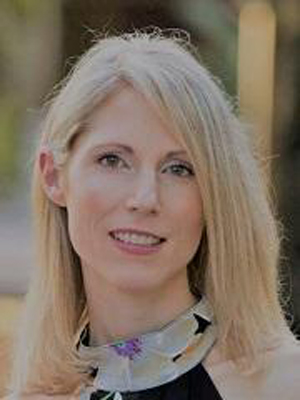 Kate Dutton-Regester – A poo’s purpose: Understanding reproduction of echidnas
Kate Dutton-Regester – A poo’s purpose: Understanding reproduction of echidnas
As a wildlife conservation scientist, Kate aims to improve the conservation outcomes for endangered species, in particular the echidna. Her research examines reproductive behaviour and physiology of the short-beaked echidna, in an effort to improve echidna breeding in captivity. This work has the potential to become a valuable model for the conservation of the endangered long-beaked echidna.
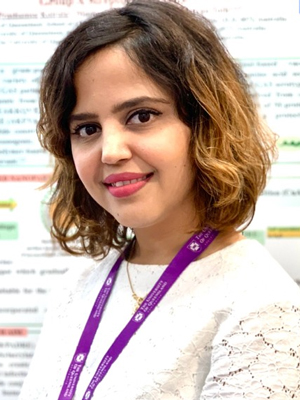 Prashamsa Koirala – Development of vaccine antigen against GAS bacterium
Prashamsa Koirala – Development of vaccine antigen against GAS bacterium
Prashamsa is a PhD candidate in the School of Chemistry and Molecular Biosciences. Her research involves developing different antigens to treat Group A Streptococcus (GAS), which when not treated timely could lead to very serious rheumatic heart disease. She has done comparative studies on different shapes of vaccine candidate to determine their ability to fight against GAS bacteria.
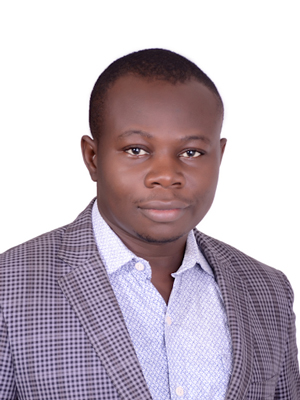 Philip Mshelbwala – Towards zero dog mediated rabies deaths in Nigeria by 2030
Philip Mshelbwala – Towards zero dog mediated rabies deaths in Nigeria by 2030
Philip is a veterinarian actively involved in teaching and research in the area of infectious diseases epidemiology. His PhD research uses spatial and analytical tools to understand the pattern of rabies transmission in Nigeria. He aims to formulate a robust framework for effective surveillance and disease control at the human and animal interface.
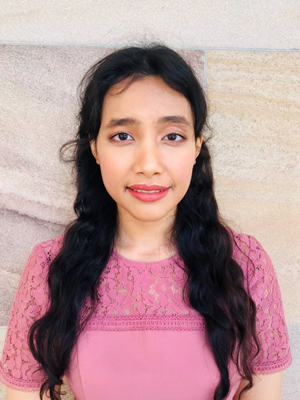 Ras Baizureen Roseli – Towards rapid drug discovery
Ras Baizureen Roseli – Towards rapid drug discovery
Ras is currently undertaking her PhD in computational chemistry in the School of Chemistry and Molecular Biosciences. Her research focuses on applications of molecular modelling in medicinal chemistry and materials science. Through her research, she has examined a new way to accelerate the drug discovery process using advanced molecular modelling techniques.
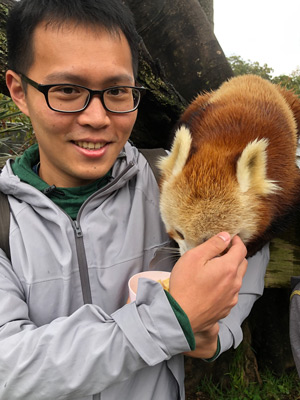 Hao-Yu Shih – Your personality affects the leash tensions when walking dogs
Hao-Yu Shih – Your personality affects the leash tensions when walking dogs
Hao-Yu is a PhD candidate in the School of Veterinary Science. His research focuses on human and canine interaction and investigates the relationship between the human personality and the behavioural patterns when walking dogs on a leash. He was inspired to participate in the 3MT as an opportunity to sharpen his communication skills and engage his research with a wider audience.
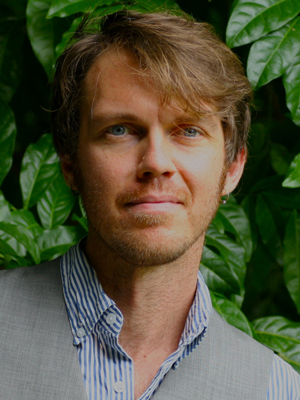 Scott Spillias – The seaweed revolution
Scott Spillias – The seaweed revolution
Dismayed by the rapid declines in ocean ecosystems and coastal communities, Scott decided to become a more effective agent for positive change, completing a Masters in Environmental Management before undertaking his PhD. His research aims to better inform decisions about the ocean so that it can be protected from further harm but also unlock its potential to address global problems.
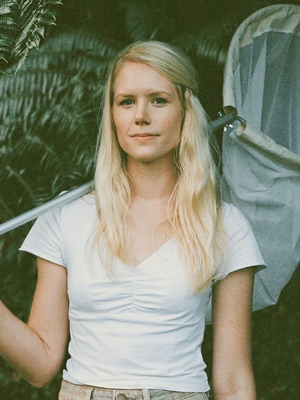 Jessa Thurman – Bringing diversity to a green desert
Jessa Thurman – Bringing diversity to a green desert
Jessa is an entomologist by trade and by heart, working to support the diversity of insects needed for a healthy planet. Her research examines the conditions in agricultural landscapes, or ‘green deserts’ and how they can be modified to sustainably control pest invasion.
- Isaac Towers – Plants, species diversity and offices
Isaac is a plant ecologist in the School of Biological Sciences. One of the persistent challenges in community ecology is attempting to understand how diversity is maintained in hyperdiverse ecosystems. Isaac hopes to use his knowledge gained throughout his PhD to improve restoration outcomes for degraded Australian ecosystems.
About BrisScience
BrisScience is a monthly lecture series that brings science out of the labs and to the people, making it accessible to all – from scientists, to scientists-at-heart.
Run by The University of Queensland, BrisScience has been delivering engaging lectures on diverse topics from local and international scientists for over a decade.
BrisScience speakers are leaders in their given fields and deliver dynamic presentations based on cutting-edge research.
The University of Queensland has been running BrisScience since 2005, bringing the best and brightest scientific minds to the people of Brisbane – from early career researchers to Nobel Laureates!
| Time | 6:30pm to 7:45pm (light refreshments 7:45-8:30pm) |
|---|---|
| Venue | Auditorium 1, State Library of Queensland, Stanley Place, South Bank |
| Cost | Free - Eventbrite ticket required |
Subscribe
Sign up to be on our mailing list and be the first to know the latest BrisScience news, events and announcements!
The mailing list is used only to advertise upcoming BrisScience talks. If at any time you decide that you no longer wish to receive the emails, you can unsubscribe from the bottom of your latest email.




